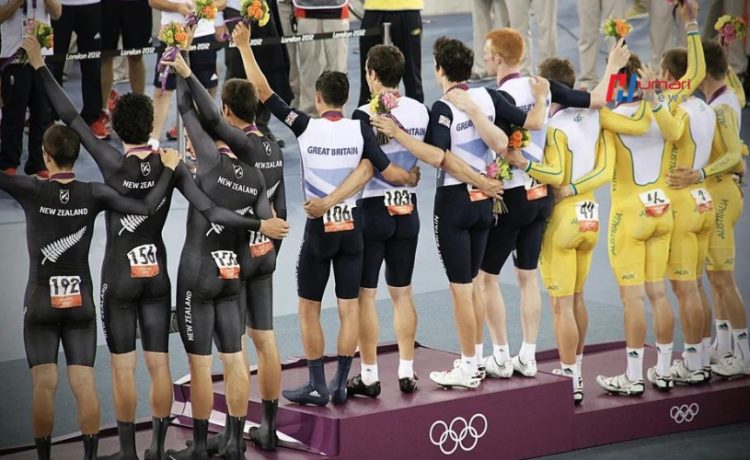The Olympic Games, a beacon of athletic excellence and international unity, have captivated the world for over two millennia. From its ancient origins in Greece to its modern incarnation, the Olympics have transcended the realm of mere competition, evolving into a global platform for promoting peace, cultural exchange, and the pursuit of human potential. This article delves into the rich history and enduring significance of the Olympics, exploring its multifaceted role in shaping the world.
A Legacy Rooted in Ancient Greece: From Ritual to Global Spectacle
The Olympic Games boast a lineage stretching back to 776 BC in ancient Greece. Originally a religious festival honoring Zeus, the king of the gods, the Games featured athletic competitions and were observed by a sacred truce declared by warring city-states. This early iteration of the Olympics laid the foundation for the core values of athletic competition, sportsmanship, and peaceful assembly that resonate even today.
Following a 1,500-year hiatus during the Roman era, the Olympics were revived in the late 19th century by Pierre de Coubertin, a French educator who envisioned the Games as a catalyst for international cooperation and understanding. Coubertin believed that athletic competition could transcend political and cultural divides, fostering a spirit of friendship and respect among nations.
The first modern Olympics, held in Athens in 1896, marked a new chapter in the Games’ history. Athletes from 14 nations competed in a limited number of events. However, the seeds of international cooperation had been sown. Over the following decades, the Olympics grew in scale and scope, attracting athletes from an ever-increasing number of nations.
A Crucible for Athletic Excellence: Pushing the Boundaries of Human Potential
The Olympic Games serve as a pinnacle of human athletic achievement. Athletes dedicate years of rigorous training to compete on the world’s biggest stage. Records are shattered, new heights of physical prowess are reached, and the spirit of pushing one’s limits to achieve the seemingly impossible is celebrated.
The Olympics showcase a diverse range of sports, each demanding a unique blend of physical talent, mental fortitude, and strategic acumen. From the explosive power of weightlifters to the unwavering endurance of marathon runners, the Games provide a platform for athletes across various disciplines to showcase their dedication and exceptional skill.
Beyond the pursuit of individual glory, the Olympics also foster a sense of national pride. Athletes compete under their nation’s flag, their victories celebrated as triumphs for their entire country. This collective spirit inspires athletes and unites fans across geographical and cultural boundaries.
A Catalyst for International Cooperation and Cultural Exchange
The Olympics act as a bridge between nations, fostering a spirit of cooperation and understanding. The Olympic Truce, a modern-day iteration of the ancient tradition, calls for a cessation of hostilities during the Games. While not always observed universally, it serves as a powerful symbol of the potential for peace through shared ideals.
The cultural exchange that flourishes during the Olympics is another testament to its unifying power. Athletes from diverse backgrounds come together, sharing their traditions and customs with the world. The Olympic Village serves as a microcosm of global society, where cultural barriers are broken down through shared experiences and a common language – the language of sportsmanship.
The Opening and Closing Ceremonies are spectacular displays of cultural expression, showcasing the rich heritage and artistic traditions of the host nation. These ceremonies create a sense of global unity, reminding us of the shared humanity that transcends language and cultural differences.
The Challenges and Evolving Landscape of the Olympics
The modern Olympics are not without their challenges. Doping scandals, political tensions, and issues surrounding commercialization have cast shadows on the Games at times. However, these challenges also present opportunities for reform and adaptation. The International Olympic Committee (IOC) has implemented stricter anti-doping measures and continues to strive for transparency and fair play.
The evolving landscape of the Olympics also reflects the changing world. New sports are added to the program to stay relevant and attract younger audiences. The inclusion of Para athletes in the Games recognizes the talents and dedication of athletes with disabilities, further promoting inclusivity and equality.
In conclusion, the Olympics are more than just a sporting event. They are a global stage for showcasing athletic excellence, promoting international cooperation, and celebrating cultural exchange. The Olympic spirit, embodied in the motto “Faster, Higher, Stronger – Together,” serves as a powerful reminder of the potential for humanity to achieve greatness through unity and shared ideals. As the Games continue to evolve, their influence on the world stage promises to remain significant, inspiring future generations to strive for a better tomorrow.







